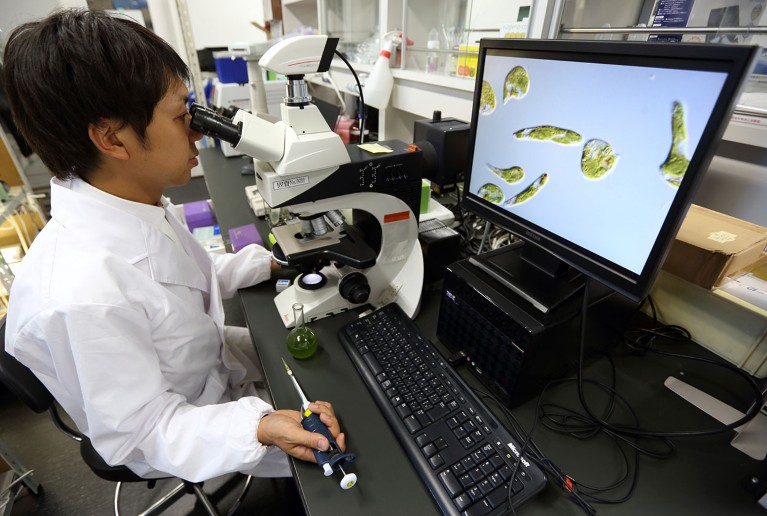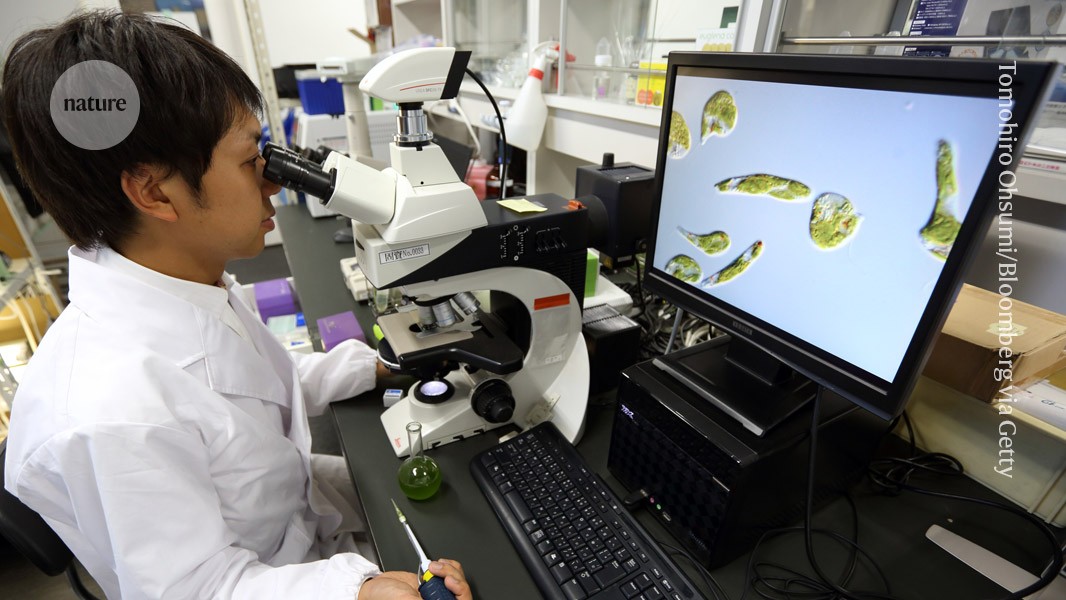
Scientists in Japan are calling for increased funding for basic research.Credit: Tomohiro Ohsumi/Bloomberg via Getty
More than 500 organizations representing hundreds of thousands of scientists in Japan have launched a petition that calls on the government to increase funds for its main scientific-grants agency.
The petition calls for greater funding for the Grants-in-Aid for Scientific Research (KAKENHI) programme.
KAKENHI has provided crucial funding for curiosity-driven research, says Kazushige Touhara, a biochemist at the University of Tokyo and the president of the Union of Japanese Societies for Biological Science, one of the organizations backing the petition.
The petition describes KAKENHI as having funded studies that led to Japan’s most notable scientific achievements, including Nobel prizewinning discoveries such as induced pluripotent stem cells.
Other grants are available for research with clear societal applications or government priority areas, but KAKENHI is Japan’s most important source of basic-science funding, Tohara says. He says KAKENHI’s funds are the only competitive grants accessible to Japanese researchers across all disciplines.
In absolute terms, the annual budget for KAKENHI has remained flat for the past decade, hovering at just under 240 billion yen (US$1.5 billion). When considering inflation and a weaker yen, the average amount allotted per project has decreased by half between 2013 and 2022 (the last year for which data are available).
“A sinking yen, rising publication costs and inflation over the past year have pushed academics over their limit,” says Yukiko Gotoh, a molecular biologist at the University of Tokyo who initiated the petition.
Declining standing
The petition comes at a time of mounting concern regarding the country’s dwindling research standing. According to a 2023 report by the Japanese Ministry of Education, Culture, Sports, Science and Technology (MEXT), Japan’s global rank in countries with the top 10% of most-cited papers, a measure of high-impact research, slid to 13th. One of the reasons for this decline, policy analysts say, is reduced funding. Whereas many high-income countries have considerably increased their research spending in the past two decades — for example, China did so by more than tenfold — Japan’s overall spending had increased only by 10% in real terms.
In an effort to arrest the decline, the Japanese government has pursued a “select and concentrate” strategy, channelling funds into a few disciplines that it thinks the country can compete in.
But Hiroshi Kimura, a cell biologist at the Tokyo Institute of Technology and a co-organizer of the petition, says that a key aim of the petition is to challenge this strategy. “There is no future in Japanese science without cultivating diverse seeds of innovation,” he says. The Japanese government is increasingly directing both KAKENHI and other grant programmes to the universities and disciplines it has selected, he says, leaving other research groups scrabbling for funds.
Tohara explains that the petition will focus on KAKENHI as a first step, because it is an achievable goal. The petition does not specify a target amount for the programme, but organizers say that when inflation and rising publication costs are taken into account, at least 480 billion yen — double the current annual budget — is needed to regain international competitiveness.
But Keitaro Ohno, a politician who serves on the Research Commission on Science, Technology and Innovation Strategy in the ruling Liberal Democratic Party, says it’s not as simple as increasing the funding pot. He says the country needs to restructure its funding mechanisms, which haven’t substantially been revised in decades. Ohno is generally supportive of more funding for scientists, but says that the KAKENHI grant programme must be considered in concert with other programmes for research funding. “Given the significant progress we have made in university reform, it’s time to … fundamentally restructure funding mechanisms instead,” he says.
Nature has contacted the Secretariat of Science, Technology and Innovation Policy for comment on the petition and will update the story with their response.
